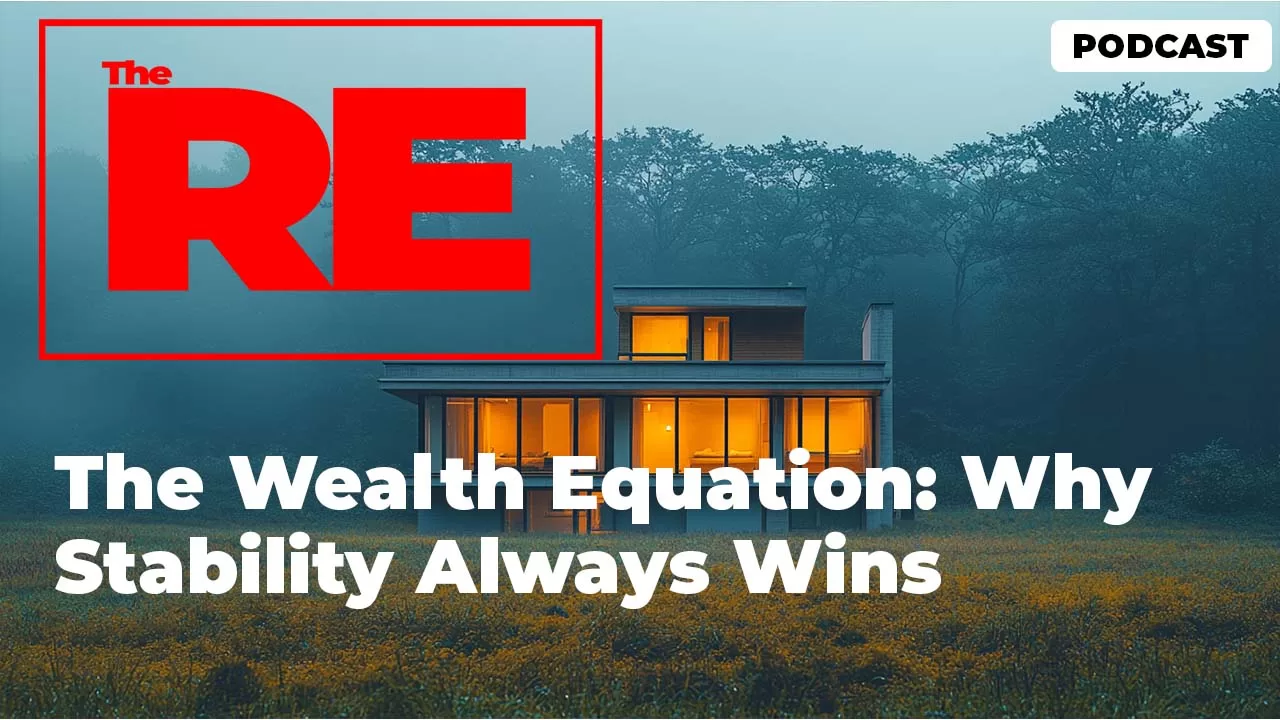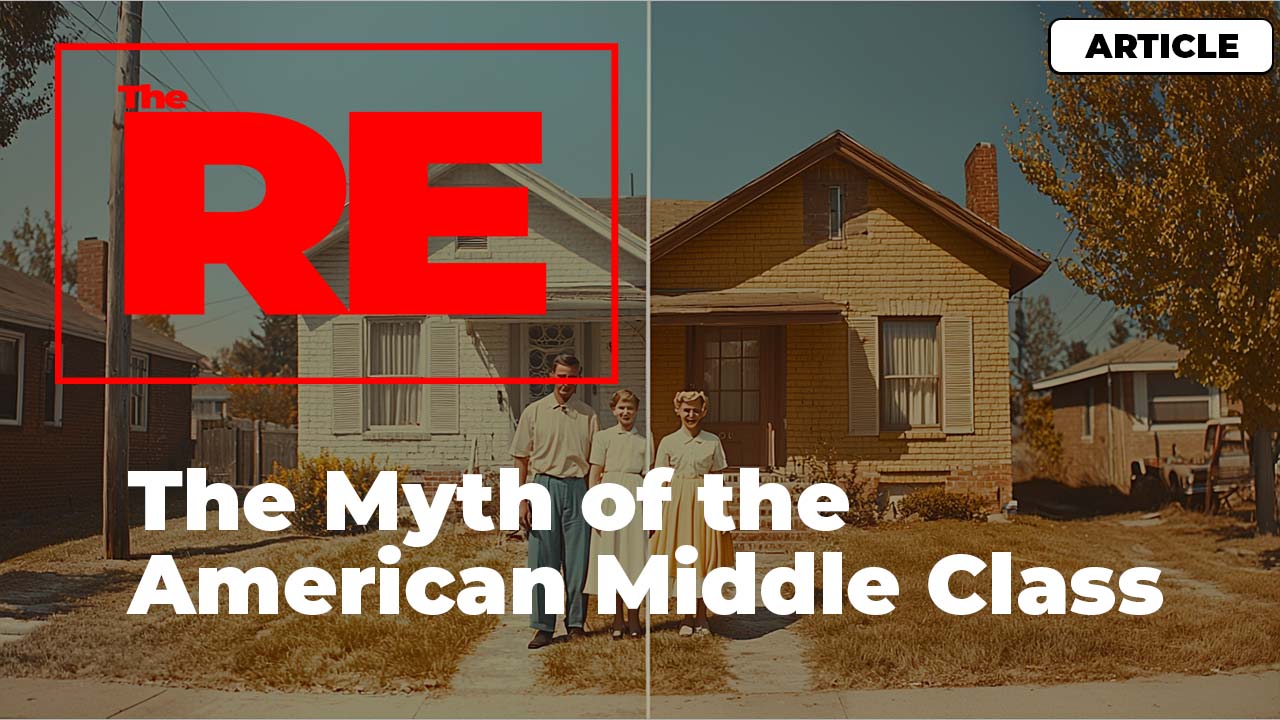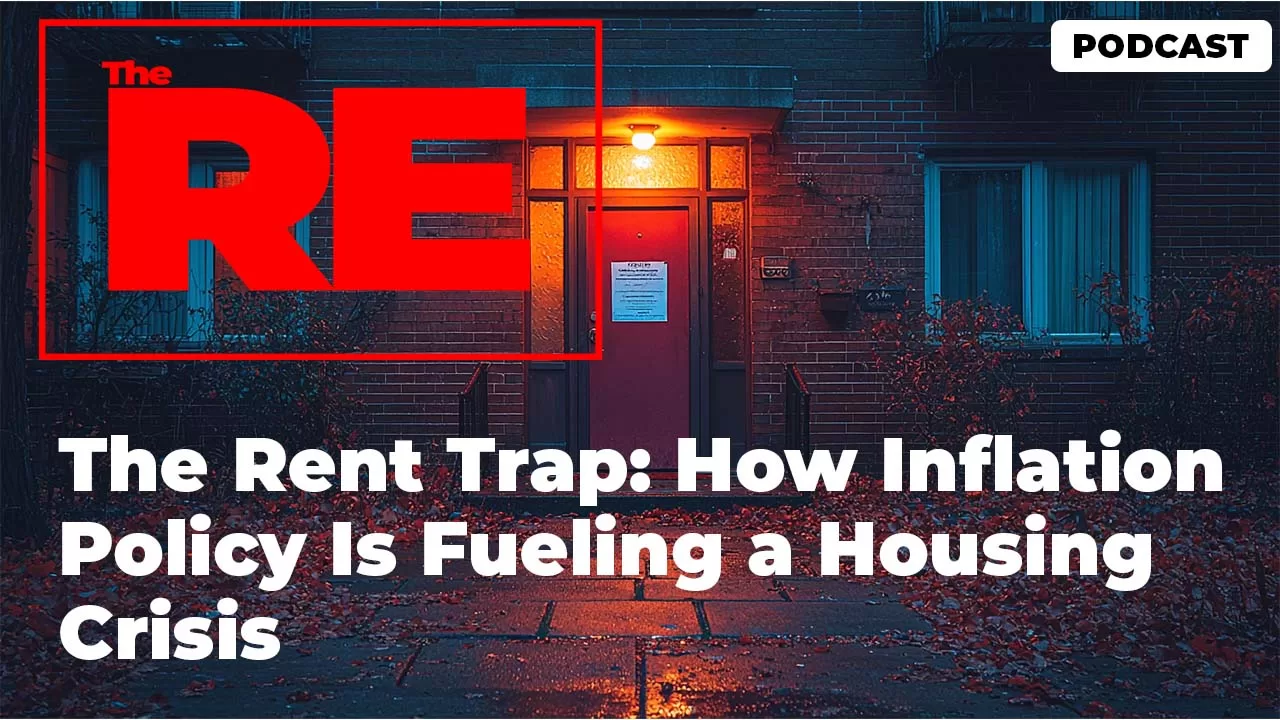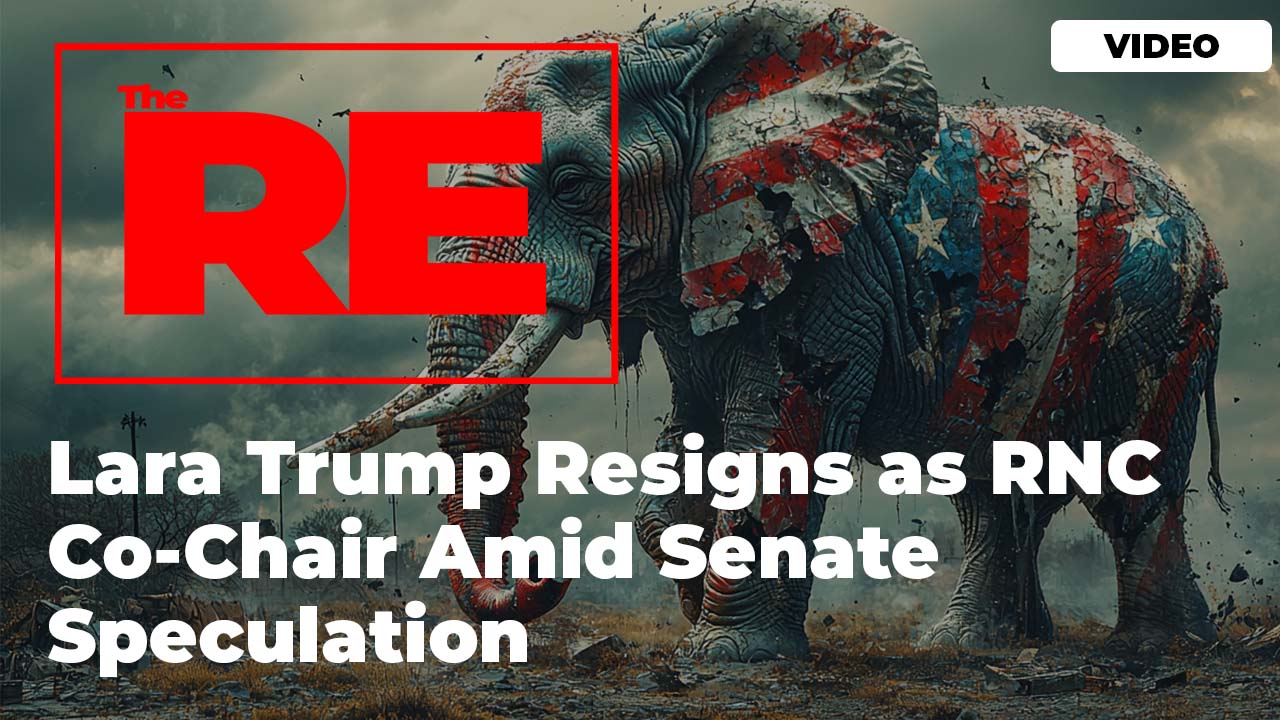The Ripple Effect
-News and Commentary-
The Wealth Equation: Why Stability Always Wins
- Home
- News and Commentary
- The Wealth Equation: Why Stability Always Wins


Over the next two decades, more than eighty trillion dollars will be transferred between generations in the United States. Nearly half of that is expected to go to the wealthiest one percent. That’s not wealth being built—it’s wealth being protected. Reinforced. Quietly passed down in ways that never make the evening news, while the rest of the country gets speeches about hard work and personal responsibility. The American Dream is still being sold, but behind the scenes, the assets are already spoken for.
Even now, the average white family has a net worth north of $180,000. Latino families? About $36,000. Black families? Barely $24,000. But those numbers don’t tell the full story, and they don’t need to. Because this isn’t just a conversation about race—it’s about distance. The distance between families who’ve owned property since the sixties and families who are still renting in neighborhoods shaped by red lines that never fully faded. The distance between people whose parents could co-sign a loan and people whose parents needed help keeping the lights on. The distance between generational equity and generational exhaustion.
And if you strip away the statistics, you still see the pattern. Certain households have options. Others have to make sacrifices. And the longer you’re outside that cycle of compounding returns—whether in real estate, stocks, education, or business—the harder it becomes to catch up. What’s sold as a level playing field is really just a level tone. The story sounds fair. The math doesn’t.
What makes this worse is that so many of the advantages are cloaked in merit. Legacy admissions are framed as tradition. Inherited real estate becomes good planning. Family investments in startups are written off as grit and risk tolerance. All the while, the tax code is bending to accommodate wealth, not work. Step-up basis laws let entire fortunes bypass capital gains taxes. Trusts shield assets from scrutiny. Donor-advised funds get praised as philanthropy when, in practice, they often work more like personal piggy banks with a charitable stamp.
But even with all of that, I’ve had to admit something that’s been harder to unpack—especially when I look at my own life. I’ve been in seasons where I wasn’t financially secure, but I wasn’t poor. I wasn’t living in a car. I wasn’t wondering where my next meal was coming from. I was just overextended. And that’s an important distinction, because being broke can sometimes be the result of ambition, not oppression.
The truth is, there were points in my career where I had steady income, leadership responsibilities, and enough of a cushion to cover my expenses without constant anxiety. I wasn’t drowning—I was floating in place. Could I have done more with that stability? Maybe. If I had downsized earlier, cut back on some conveniences, and leaned into minimalism, I probably could’ve built a more sustainable financial base. But like a lot of people, I didn’t want to scale back. I wanted to push forward.
That’s where it gets complicated. There’s a version of poverty that comes from lack of access, and there’s a version that comes from chasing the next thing without ever pausing long enough to build roots. And if I’m honest, I’ve done both. I’ve built, then pivoted. Created, then restarted. And while that flexibility has allowed me to learn and grow in ways a single path never could, it’s also meant starting over more times than I’d care to count.


This is not breaking news. We don't report the news. We Unpack it. Explain it. And analyze what it means.
Click this button to add us to your home screen.
My father had a very different experience. He wasn’t rich either, but he stayed consistent. A military career might not make you wealthy, but it can give you structure. You stay in long enough, and eventually, you’re not scrambling. You’ve got a pension. Benefits. Predictability. It’s not glamorous, but it’s solid. And that kind of long-term foundation has a different kind of power. It doesn’t just give you money—it gives you breathing room.
When you chase dreams, you accept volatility. You make bets on yourself that sometimes pay off and sometimes leave you catching up. And if those bets don’t land quickly—or if you keep resetting—you lose time. You lose the compound effect. Because money, just like effort, multiplies when it’s given time to sit and grow. And if it’s always being moved around, reallocated, restarted, then you’re not just chasing wealth—you’re resetting wealth before it can take root.
And that’s the part that never gets talked about in these conversations. We talk a lot about inequality, and we should. But we rarely talk about instability. We don’t talk about what happens when ambition gets ahead of strategy. We don’t talk about the tension between staying the course and reaching for something more. I know people who’ve made less money than me over the years but are in better financial shape because they didn’t switch tracks every time a new opportunity came knocking. They kept their expenses low, stayed employed, and let time do its thing.
So yes, the system is skewed. The policies are engineered to maintain concentration of wealth, not redistribute it. But that doesn’t mean all outcomes are out of our control. And it doesn’t mean every setback is systemic. Sometimes, it’s personal. Sometimes, it’s the cost of trying to leap instead of climb.
There’s no shame in trying to build something different. But there’s a cost. And for people who weren’t born into wealth—especially for minority communities who already deal with gaps in access to capital, credit, healthcare, and housing—those costs add up faster than most folks realize. You lose a job and you don’t have a family home to fall back on. You need a loan, but your parents can’t co-sign. You get sick, and you don’t have the kind of insurance that covers real recovery. So you push through. And you try again. And maybe you make it. Or maybe you end up stuck in a loop where every step forward comes with a step back.
That’s the quiet math behind the wealth equation. The part that doesn’t show up in net worth charts or economic forecasts. The part that’s built on decision-making under pressure, the kind that comes from trying to get somewhere faster than the system ever intended you to. For some of us, it’s not that we were denied a seat at the table. It’s that we kept trying to build our own, but had to tear it down and start over before it was finished. Over and over again.
And at a certain point, you start to realize the real gap isn’t just financial—it’s emotional. It’s the difference between people who move through life knowing the ground won’t fall out from under them and those who’ve been bracing for impact for years. That kind of stress doesn’t go away just because you get a bigger check. It doesn’t evaporate when you hit a good quarter. It stays. Because you’ve never had the space to let it go.
That’s what this is about. Not just who has wealth, but who gets to breathe. Who gets to plan without panic. Who gets to take risks without risking everything. And who has to keep proving they’re worthy of rest.

Start looking close enough, and the system stops looking broken. It starts looking intentional. Because it is. The concentration of wealth in this country didn’t just happen—it was structured. And when you strip the story down to its bones, you start to see just how deep that structure runs. It’s in the tax code. It’s in admissions offices. It’s in how property is assessed. It’s in who gets to borrow money, how much, and on what terms. The game has rules, but only a few people ever get to read the full manual.
Wealth in America isn’t about income. It’s about positioning. You can earn six figures and still be broke if you’re starting from zero and carrying three generations worth of deferred dreams. Meanwhile, someone with a paid-off house, a trust account, and a family name that opens doors doesn’t have to lift a finger to stay ahead. One group is building. The other is maintaining. And that difference is everything.
So much of this starts at birth. Where you grow up determines your access to education, your proximity to violence, your exposure to opportunity. A kid born in a low-income zip code is likely to attend underfunded schools, eat less nutritious food, and live in a neighborhood with fewer parks, fewer sidewalks, and more police. That kid grows up watching their parents work twice as hard for half as much—and internalizes that struggle. Not as a flaw in the system, but as a fact of life.
Then comes higher education. Not just what you can afford, but whether you even know how to navigate the system. People talk about student loans like they’re a strategy. For a lot of families, they’re a trap. Especially for first-generation college students who are told that education is the path out, but aren’t told about interest rates, loan types, or job market realities. Meanwhile, legacy students are skipping the FAFSA altogether. They’re getting acceptance letters before they even finish high school, and internships through their uncle’s golf buddy. The doors are already open. They just have to walk through them.
Housing is another layer. If your family owns property, especially in a growing market, you’ve got access to equity. You can pull money out of your home to send your kids to college, start a business, or survive a rough patch. If you don’t? You’re at the mercy of rent hikes, neighborhood gentrification, and the volatility of a market that was never built to serve you. And even when minority families do manage to buy homes, they face appraisal bias. Same house, same neighborhood, but tens of thousands less in value because of who lives in it. That’s not theory. That’s real. That’s documented.
Then there’s business. Getting something off the ground doesn’t just take vision—it takes capital. But startup money moves through networks, not applications. Most high-yield investment opportunities never make it to public eyes. They stay behind closed doors, passed through families, friends, and inner circles. You don’t hear about them until they’re already profitable. And when you try to break in, you’re seen as high risk—because your financial history doesn’t look like theirs, because your credit isn’t backed by assets, because your skin color doesn’t match the pattern of who usually gets approved. So you take out more expensive loans, agree to worse terms, or give up equity you should’ve kept—just to get a seat at the table.
Even retirement plays out differently. People who’ve had stable jobs for 30 years, who’ve owned homes, who’ve never needed to cash out a 401(k) early—they glide into retirement. Not rich. But comfortable. The other group? They’re still working in their 60s. Not because they want to, but because they have to. They cashed out early to survive a crisis. They never had matching contributions. They were too busy covering emergencies to think long-term.
And all this? This is the part they call meritocracy. This is what we’re told is fair. But the truth is, fairness doesn’t show up in outcomes. It shows up in structure. And this structure favors one kind of life over another. A stable life. A connected life. A life that gets the benefit of the doubt.
So much of this comes down to access. Not just to money, but to time. To patience. To safety. If you’ve never had to decide between paying your electric bill or keeping your phone on, you’re not in the same conversation. If you’ve never had to skip a doctor’s visit because the copay was too high, or delay a car repair because you couldn’t cover both the rent and the fix, you’re playing a different game.
Wealth isn’t just about what you have. It’s about what you never had to worry about. That’s the part that’s hard to explain to people who’ve always had a financial buffer. They don’t realize how many decisions are made from a place of fear. Of exhaustion. Of calculation. Not “what’s the best move for growth,” but “what’s the least risky way to survive this month.”
And that’s what the wealth equation really exposes. Not just inequality, but momentum. Some people are pushed forward by the wind of legacy, while others are still fighting to pull the anchor out of the ground. And every delay, every restart, every reset costs time that can’t be recovered. Because while you’re catching up, money is still compounding—just not for you.
We don’t talk about that enough. We talk about the gap, but not the slope. The incline is steep, and it’s steepest for people who weren’t handed a starting point. That’s why the cycle repeats. That’s why it feels like no matter how hard you work, you’re still behind. Because you are. Not because you failed. But because the system was calibrated to reward stillness, not movement. And when you come from a family or a community that’s had to keep moving just to survive, stillness isn’t just foreign—it’s dangerous.
That’s why this conversation has to go deeper than just “rich vs poor.” It has to include the middle. The ones who almost made it. The ones who were stable, but never secure. The ones who got close, but not close enough to pass anything down. Because the real story of wealth in America isn’t just who’s winning—it’s who’s stuck between progress and survival. And how many people are living in that middle space, running out of time.

You start to feel it early. Maybe not when you’re a kid, but definitely by the time you hit your twenties. That gap between what you’re told is possible and what actually feels possible. The space between what you’ve earned and what you can hold onto. The realization that you can be smart, capable, motivated—and still stuck.
And it’s not because you’re lazy. It’s not because you didn’t try. It’s because the road is different. You don’t get to make one or two good decisions and coast. You’ve got to make ten in a row. Then another ten. And even then, one unexpected hit—a medical bill, a layoff, a broken car—can knock it all off track. That’s the part people don’t see. The emotional fatigue of starting over. The way it wears on you. How eventually, you stop thinking about building anything and just try to keep what you’ve got from falling apart.
It’s like living with a tax on your ambition. Every time you think about moving forward, there’s a quiet voice doing the math in the back of your head. Not just about cost, but about risk. Can I afford to take this chance? Can I survive if it doesn’t work? Do I have a backup plan? And if the answer is no, you shrink your dreams before they ever leave your mouth.
That’s not mindset. That’s experience.
It’s the feeling of having just enough to not drown, but never enough to rest. Of watching other people talk about generational wealth while you’re still trying to generate breathing room. Of scrolling past advice that doesn’t apply to your life and pretending like maybe one day it will. Of hearing phrases like “wealth building” or “financial literacy” and thinking, that’s great, but how do I budget when I’m already running a deficit?
It’s knowing that every decision has weight. That there’s no margin for dumb mistakes. That even small wins have to be protected like investments. Because if you mess up—even once—you don’t fall back on a family trust or a second property or a parent who can float the bills. You fall back on nothing. Or worse, you fall into debt. And debt doesn’t just hurt—it follows you. It limits your options, kills your credit, raises your interest rates, and makes everything more expensive. It locks doors you didn’t even know existed until they were already closed.
And the hardest part? You’re surrounded by people who don’t get it. Friends who mean well but talk about money like it’s just a matter of discipline. Colleagues who suggest you “just save a little more” as if the math is that simple. Financial experts who treat your struggle like a case study instead of a lived experience. They don’t see the quiet trade-offs. The things you skip. The corners you cut. The plans you let go of because survival ate your strategy.
And it’s not just money. It’s time. It’s energy. It’s joy. You don’t go on trips. You don’t go out as much. You say no to weddings and reunions because the flight plus hotel plus outfits plus gifts is too much. You delay dentist appointments, let the oil change wait, and tell yourself you’ll get to it next month. Not because you’re irresponsible, but because you’re exhausted. From carrying it. From explaining it. From pretending it’s temporary when you’re not even sure anymore.
You start to feel isolated. Like you’re doing something wrong. Like you’re the only one struggling. But then you look around, and you realize you’re not alone. You’re surrounded by people just like you. People who’ve worked hard, made smart moves, done everything they were supposed to—and still can’t get ahead. Still can’t breathe. Still can’t plan. Not because they failed. But because the system isn’t set up for them to win. It’s set up for them to survive. Maybe. If nothing goes wrong.
This is where that wealth gap becomes something deeper. It’s not just numbers anymore. It’s a gap in quality of life. In peace of mind. In the ability to dream without immediately calculating the cost. People talk about the freedom money gives you—but they don’t talk enough about the freedom it takes away when you don’t have it.
That’s what generational wealth really is. It’s not luxury. It’s leverage. It’s choice. It’s the ability to live without fear that one wrong move will unravel everything. It’s the space to think long-term. To heal. To rest. To start a business without betting your rent money. To take a sabbatical without sinking. To say no to a job that drains you because you’re not desperate.
And most people never get that. Especially in communities where economic instability is inherited. Where the first priority isn’t building a legacy—it’s breaking a cycle. Where the word “wealth” sounds like a punchline because nobody around you has ever had the time, money, or resources to even define it.
So yeah, it’s personal. It’s structural. It’s emotional. It’s all of it. And if we’re gonna talk about it, we’ve got to stop pretending that struggle is always a result of poor choices. Sometimes it is. But a lot of times? It’s the result of being left out of a system that rewards stillness when your entire life has been shaped by movement. And when the only way you’ve ever known how to survive is to keep going, keep adjusting, keep fixing—it becomes harder and harder to imagine what it feels like to just be.
There’s a line we don’t talk about enough in these conversations, and it sits somewhere between blame and responsibility. Somewhere between systems and self. Because truth be told, the system is rigged. The policies, the pipelines, the payouts—they’re built to reward those who are already ahead. But at the same time, there are moments—quiet ones—when we know we could’ve moved differently. Could’ve waited. Could’ve stayed the course. Could’ve stopped chasing the dream long enough to build a foundation under our feet before we reached again.
But no one teaches you how to balance that. They teach you to want more. To chase purpose. To go big. But they don’t teach you how to stay planted long enough for anything to take root. And the world doesn’t exactly slow down and wait for you to figure it out. So you move. You pivot. You make it work. And sometimes, that hustle pays off. But other times, you realize you’ve been running in circles. And while you’ve been moving, other people have just been compounding.
That’s the real danger of this wealth equation. It’s not just who has money. It’s who had the time to let their money grow. Who had the safety to say no. Who had the room to pause. Because time and safety are currency. And if you’ve spent your life exchanging yours for survival, you’ve already paid a price that most people don’t even realize exists.
This is where it gets hard to talk about. Because some people will hear this and think it’s defeatist. Like we’re making excuses. But that’s not what this is. This is accountability, with context. This is naming the reality of trying to build something meaningful in a structure that’s designed to extract value from you, not deliver it. This is about the fact that personal responsibility doesn’t work the way people think it does when the floor beneath you is uneven.
This is not breaking news. We don't report the news. We Unpack it. Explain it. And analyze what it means.
Click this button to add us to your home screen.
And I’ll be honest—some of this, I’m still learning. Still unlearning. Still negotiating with myself. I’ve chosen the creative path more than once. The builder’s path. The unpredictable one. And sometimes that decision has cost me stability I know I could’ve had. Not because I was reckless. But because I was trying to create something bigger than a paycheck. But here’s the truth: trying to build something visionary without a strong foundation can become a form of self-sabotage if you’re not careful. Especially when the market doesn’t owe you a return on your purpose.
So yeah, I believe in the dream. But I believe in discipline too. In long-term thinking. In sticking with something even when it doesn’t shine every day. Because I’ve seen what happens when people walk away too early. And I’ve seen what’s possible when people stay the course.
That’s what we don’t say enough. That both things can be true. The system can be unfair and you still need a plan. The game can be rigged and you still have agency. The door might not open for you, but if you keep rebuilding the hinges from scratch every time it slams shut, you’ll never make it inside. There’s got to be a moment when you decide to anchor. To invest in slow. To stop restarting and let the work compound the way wealth does—quietly, steadily, over time.
Because that’s what legacy is. It’s not always flashy. Sometimes it’s boring. Sometimes it’s routine. But it lasts. And if we’re serious about changing the math, we’ve got to be honest about what building really looks like. Not just the big wins, but the quiet decisions that don’t feel urgent but change everything down the line.
So maybe this is what the new wealth conversation should sound like. Less about the numbers and more about the choices. Less about guilt and more about alignment. Not shame for not having made it, but clarity about what it takes to get there—and why it’s harder for some people through no fault of their own.
Because this isn’t just about money. It’s about agency. It’s about margin. It’s about whether or not you feel like you’re allowed to rest, to plan, to imagine something better without sacrificing your today just to maybe buy a better tomorrow. That’s what real wealth gives you. Space. Time. Choice. And when those things are handed down, you can build. But when they’re stripped from you, all you do is recover. And you can’t build legacy from recovery alone.
This isn’t about complaining. It’s about understanding the real rules of the game. And maybe rewriting some of them—for yourself, for your family, for the people coming next. Because if we don’t name the truth, we stay stuck in the same cycle. Chasing. Restarting. Overworking. And wondering why it never adds up.
And maybe the answer is simple: it was never supposed to. Not like that. One story. One truth. One ripple at a time. This is The Ripple Effect, powered by The Truth Project.





 and then
and then